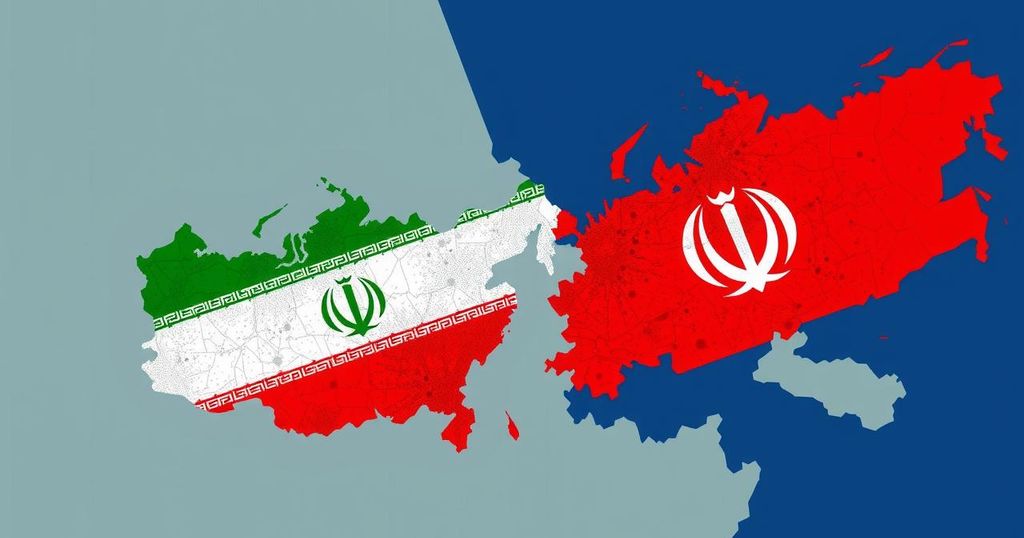The article argues that Russia’s foreign policy, led by Vladimir Putin, emphasizes flexibility and shifting allegiances to maximize influence, particularly in the Middle East. While Russia and Iran have cooperated recently, their conflicting goals in Syria pose challenges to their partnership. As Russia pivots to optimize its regional strategy amidst changing dynamics, it may consider sacrificing its alliance with Iran in favor of achieving greater geopolitical gain, particularly in negotiations involving Ukraine and regional power balances.
Russian President Vladimir Putin, well-known for his judo expertise, emphasizes the importance of flexibility—an ideology that strongly influences Russia’s foreign policy. Despite a longstanding alliance, Russia’s recent geopolitical maneuvers, including its non-intervention in Azerbaijan’s reclamation of Nagorno-Karabakh, illustrate a shift in priorities. Historically friendly relations with Israel have turned sour, while ties with Saudi Arabia are improving. This adaptability allows Russia to reposition itself effectively based on changing interests, particularly concerning Armenia’s pivot towards the West and a newfound alignment with Iran over the Gaza conflict. However, the once solid partnership with Iran appears to be on shaky ground. Russia may be contemplating a strategic withdrawal from its alliance with Iran, primarily due to its need to exert control over Syria and leverage its influence in Middle Eastern negotiations, particularly related to a peace deal in Ukraine. While Russia and Iran enjoy heightened military cooperation and mutual assistance in thwarting Western sanctions, stark disagreements linger, especially in Syria, where their strategic goals conflict. Russia desires a stable ally in Syria, whereas Iran seeks to leverage Syrian resources against its adversary, Israel. As the dynamics in Syria fluctuate, recent Israeli incursions have diminished Iran’s military influence, potentially strengthening Russia’s advantages in the region. Russian representatives have indicated their commitment to mitigate conflict spillover into Syria, explicitly restricting Iranian proxies. Despite fluctuating Russian-Israeli relations, Israel remains cautious to maintain cooperation, mindful of the delicate balance of power involving Russia. The relationship is complicated further by Iran’s dissatisfaction with Russia’s roles, symbolizing the tumultuous landscape of alliances in the region. Russia’s tactical choices, including the delay of advanced military equipment deliveries to Iran, underline its preference for a submissive ally. Amidst these shifts, reports indicate Israeli diplomacy efforts aimed at establishing a cease-fire in Lebanon, contingent upon curbing Iranian arm supplies through Syria. A potential Russian role in enforcing such measures could precipitate further tensions with Iran. Iran’s skepticism towards its partnership with Russia is clear, as it acknowledges fundamental differences in their strategic ambitions. As negotiations concerning Ukraine peace intensify, Russia might exploit its strategic advantages regarding Iranian support in Syria. Overall, Russia’s pursuit of regional hegemony is predicated on its willingness to discard enduring alliances when they no longer align with its objectives. In conclusion, Vladimir Putin’s foreign policy reflects a pragmatic, opportunistic approach grounded in maximizing Russian influence on the world stage. As evident in the evolving landscape of Russian-Iranian relations, Putin’s calculus indicates that should the alliance with Iran no longer serve Russian interests, he may be prepared to materially alter or abandon that relationship altogether.
The article examines the complex geopolitical relations between Russia, Iran, and other regional powers, emphasizing changes in alignments and strategic interests. In recent years, Russia has altered its stance towards various nations, indicating a pragmatic approach that prioritizes expediency over historical alliances. The dynamics in Syria play a critical role in these relations, with interference from both Russia and Iran vying for influence amid shared yet conflicting goals. This shifting landscape reflects broader themes of geopolitical maneuvering and national interests in a multipolar world.
The interplay of Russian and Iranian interests in the Middle East remains delicate and fraught with tension. As Russia recalibrates its foreign policy to better align with its strategic goals, it remains to be seen how its relationship with Iran will evolve. The potential for Russia to prioritize its own national interests over long-standing alliances underscores the shifting power dynamics within the region, highlighting a foreign policy driven by pragmatism and opportunism. Should circumstances dictate, Russia may very well abandon its partnership with Iran to further its objectives in the region and beyond.
Original Source: www.newsweek.com






